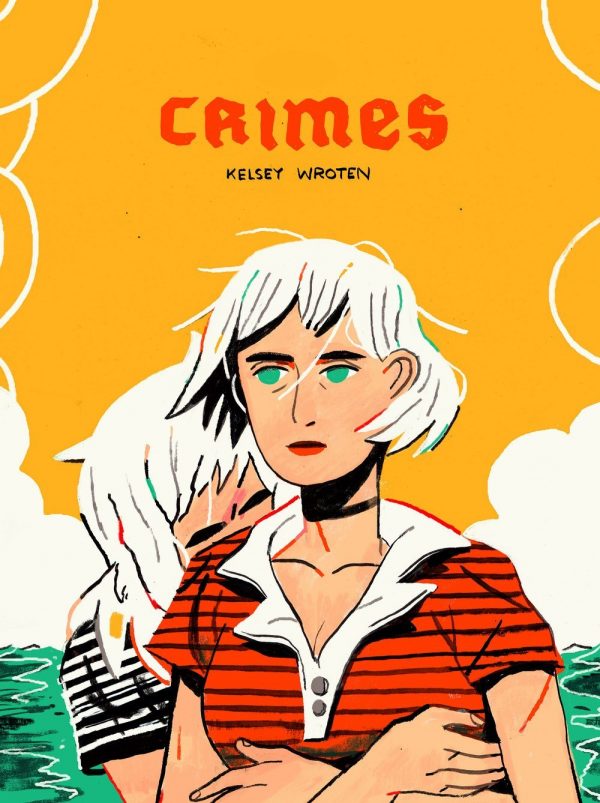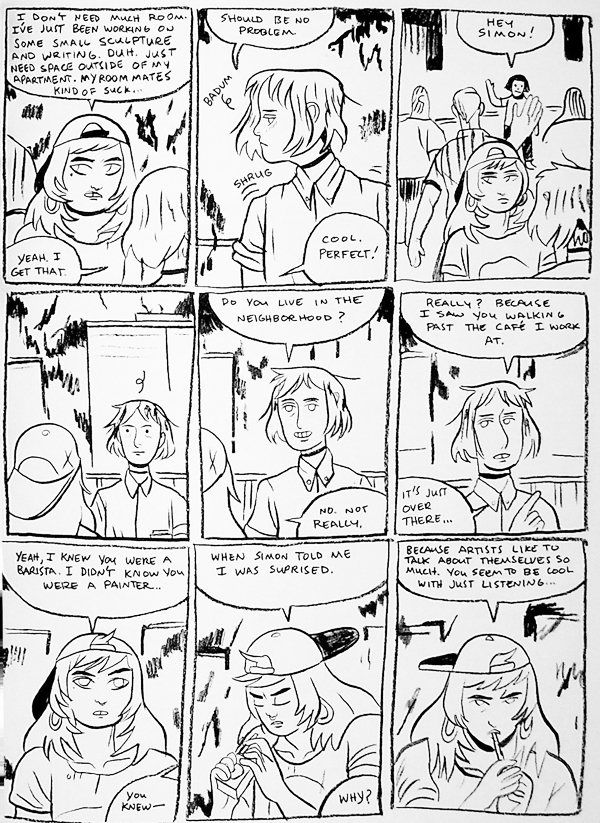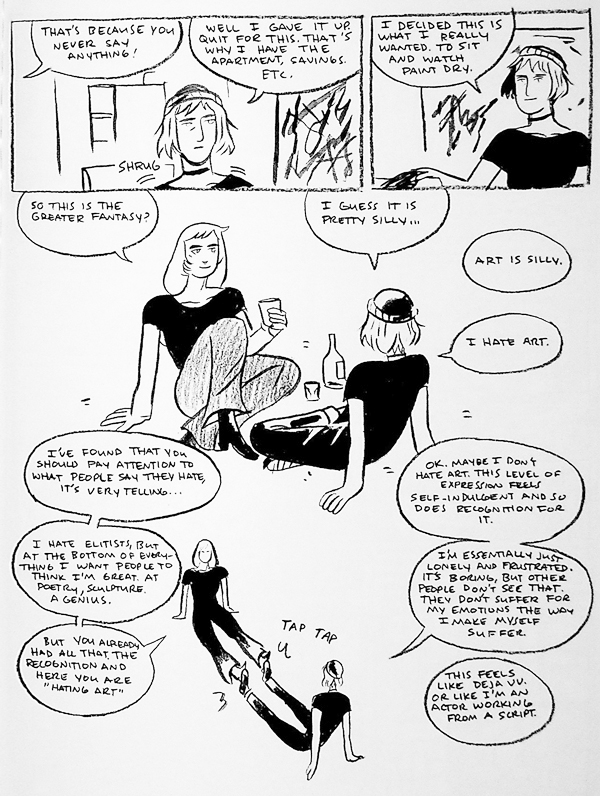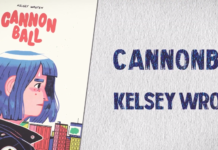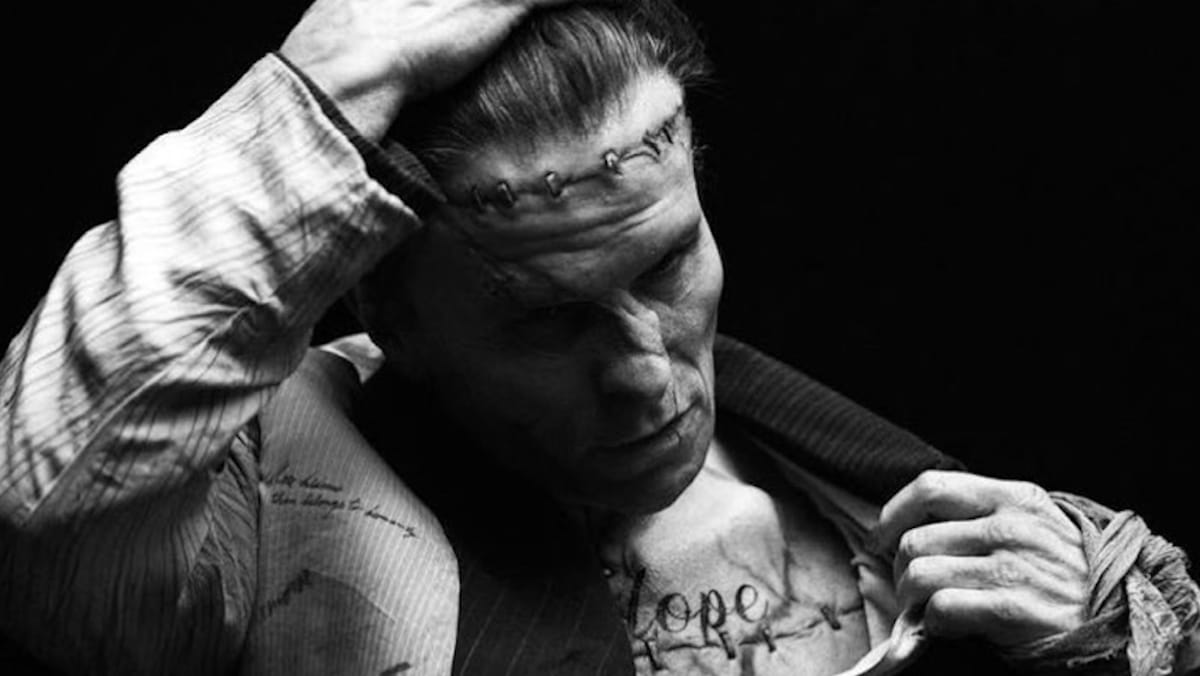Crimes
By Kelsey Wroten
Pyrite Press
I had just read and reviewed Kelsey Wroten’s Cannoball when I saw that this shorter work from last year had been awarded the Silver Award of Excellence prize for long-form work at the MoCCA Arts Festival this year and I immediately wanted to read it.
Cannonball was an insightful examination of the damage brought on by both struggle and success, and how a wounded ego can be the same ego as one that finds reward. In other words, we are who we are, regardless of the circumstance we’re in.
In Crimes, Wroten also examines ego in the form of Willa, a young artist who struggles with the loss of her friend Simon. Self-deprecating and wounded, Willa struggles with previous loss, with the concept that she is not good enough, and with a constant loneliness that does worse than make her ache. She’s just used to it.
It’s through Simon that she meets Bas, his poet girlfriend, and Willa begins to feel a connection with her that builds and builds, even though Willa is unsure whether the connection is becoming tangible enough that Bas feels it too, if only because Bas is straight.
Wroten takes this situation and focuses on the two women as they explore each other through intense conversations that slowly peel back their layers as each gets closer to the other’s emotional raw point. When this releases their feelings into the atmosphere, Willa finds herself being lead on a difficult dance in the dark with Bas as Willa tries to figure out what is the right feeling to feel, and the right way to express it.
Wroten makes no final statements on the subject matter, instead allowing the connections between the players to speak for themselves about their importance and delicacy. Love and sexuality are not measurable quantities that can be calculated against desire and guilt for a final solid answer, and Willa is finding herself trapped in this reality.
Emotions are a misty state that swirls around all of us, sometimes entrapping us, sometimes confusing us, sometimes making us feel like we are in free fall, and the emotions of others only intensify these reactions. Wroten fuses this dynamic with intense portraits of people who, the more they map out their emotional trajectories, the more lost they seem. The emotions are confusing their perception and obscuring their view of where they are headed.
Wroten takes the two mediums of Willa and Bas — painting and poetry — and applies them to the women’s story. Told in bold strokes that alternate with enigmatic turns of phrases that transforms into something not quite painting, not quite poetry, Wroten lets the reader share Willa’s frenzied state as she takes all these parts and tries to make some sense of them in the retrospect.
But Wroten knows that the exact moment of the loss can be piercing, and it steals more away than you think is being taken, forcing the sufferer to not only piece together what happened, but grapple with the fear that there may be no visible connection between the parts that led up to the moment. Love, loss, life, it’s all a mystery, unsolvable no matter how obsessive we become because of those emotional swirls around us that obstruct clarity. That seems like an impossible thing to represent on a page, but Wroten’s right here, doing just that.


